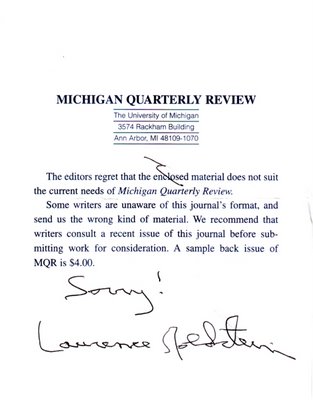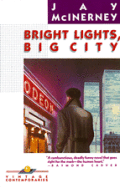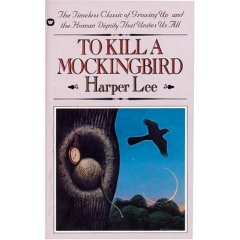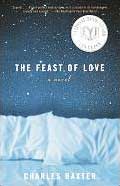 Another personal note on this one from Michigan Quarterly Review for my story "This Is What He Does." I appreciate the personal touch, Laurence, but what does "Sorry!" mean? Does it mean that you liked the story? Or does it mean that you're sorry I wasted my time? Should I try sending another story?
Another personal note on this one from Michigan Quarterly Review for my story "This Is What He Does." I appreciate the personal touch, Laurence, but what does "Sorry!" mean? Does it mean that you liked the story? Or does it mean that you're sorry I wasted my time? Should I try sending another story?Thursday, September 28, 2006
Rejection Collection - Michigan Quarterly Review
 Another personal note on this one from Michigan Quarterly Review for my story "This Is What He Does." I appreciate the personal touch, Laurence, but what does "Sorry!" mean? Does it mean that you liked the story? Or does it mean that you're sorry I wasted my time? Should I try sending another story?
Another personal note on this one from Michigan Quarterly Review for my story "This Is What He Does." I appreciate the personal touch, Laurence, but what does "Sorry!" mean? Does it mean that you liked the story? Or does it mean that you're sorry I wasted my time? Should I try sending another story?Wednesday, September 27, 2006
New-old poem by Bob Frost
From the NY Times:
A previously unknown poem by Robert Frost (1874-1963) is to be published on Monday in The Virginia Quarterly Review. Found by a graduate student, Robert Stilling, in a collection of books and manuscripts bought by the University of Virginia, the 35-line poem, "War Thoughts at Home," was written in 1918, not long after Frost's friend and fellow poet Edward Thomas was killed in World War I. It deals with a woman who learns that her husband has died in combat. In the Virginia review it is accompanied by critical essays by Glyn Maxwell, poetry editor of The New Republic, and by Mr. Stilling.
Sounds like a another cheery one from our friend Bob.
A previously unknown poem by Robert Frost (1874-1963) is to be published on Monday in The Virginia Quarterly Review. Found by a graduate student, Robert Stilling, in a collection of books and manuscripts bought by the University of Virginia, the 35-line poem, "War Thoughts at Home," was written in 1918, not long after Frost's friend and fellow poet Edward Thomas was killed in World War I. It deals with a woman who learns that her husband has died in combat. In the Virginia review it is accompanied by critical essays by Glyn Maxwell, poetry editor of The New Republic, and by Mr. Stilling.
Sounds like a another cheery one from our friend Bob.
Tuesday, September 26, 2006
Book Review: Suttree
 Suttree by Cormac McCarthy
Suttree by Cormac McCarthyI've never read a novel so beautiful and so ugly at the same time. The conditions and events we experience are of a truly pitiful sort, by McCarthy relates them in a way that makes it wonderful read. Like frost on a dog turd. Sure, I probably should have read the thing with a dictionary at the ready because the language is at times beyond reach. At times it is so lyric so poetic and abstract that I wasn't really sure what was taking place. It probably would have been better to read at a slower pace, but it was still completely immersive. I've been haunted by this book for weeks, afraid to read anything else because I'm not sure that any other book will live up to this one.
Rejection Collection - Boston Review

Another nice, stock rejection, this one from Boston Review. Nothing handwritten this time. This was received 8/29/06 for a story called "Resting."
Monday, September 25, 2006
Reviews of Cormac McCarthy's "The Road"
As we come close to the release of Cormac McCarthy's The Road, the reviews are coming and getting me excited. Here's a round-up:
The Road Through Hell, Paved With Desperation by Janet Maslin in the New York Times:
“The Road” offers nothing in the way of escape or comfort. But its fearless wisdom is more indelible than reassurance could ever be.
On the Lost Highway: Cormac McCarthy sends a father and son on the scariest road trip he can imagine. Seat belts fastened? by Malcolm Jones in Newsweek:
One measure of a good writer is the ability to surprise. Terse, unsentimental, bleak—McCarthy’s readers have been down that road before. But who would ever have thought you’d call him touching?
The parable lacks a point: Cormac McCarthy leads readers through a 'godless' landscape by Earl L. Dachslager in the Houston Chronicle:
But if McCarthy's verbal eccentricities can sometimes cross over into self-indulgent blather, he nevertheless remains one of our great storytellers, a master of suspense and narrative power. ... But for a parable to succeed, it needs to have some clear point or message. The Road has neither, other than to say that after an earth-destroying event, things will go hard for the survivors.
Delving into post-apocalypse: A bleak novel by Cormac McCarthy has a father and son fighting to live in a world turned to ash by Allen Barra in the Philadelphia Enquirer:
The Road is about the bleakest book he has ever written, and that's saying something...The Road leaves you wondering why a writer capable of using discalced was drawn to material like this in the first place.
Unhappily ever after: In “The Road,” Cormac McCarthy imagines a savage end of the world by Steve Erickson in the LA Times:
One of McCarthy's best novels, probably his most moving and perhaps his most personal, "The Road" would be the ideal coda to a body of work that now spans 10 books over 40 years. But that would mean no more McCarthys, and no one could want that. Rather, we may hope he'll find more inspiration where "The Road" came from — it's dedicated to his son — even as the book wrenches our nightmares into a gray light where they don't vanish but become more vivid.
Barbarism rages in a Southwest seized by nuclear winter in Cormac McCarthy's fierce futuristic tale by Jerome Weeks in the Dallas Morning News:
In fact, Mr. McCarthy is perhaps our only writer to master William Faulkner's Southern Gothic, then Hemingway's wounded heroism, and now he has reached the bone-stark lyricism of Samuel Beckett....Along with any natural beauty, any salvation, what's gone in The Road is any humor (even Beckett laughs). What's left, besides the barest flicker of human community, is Mr. McCarthy's astonishing, pared-away language, the poetry of stones and cold sunsets.
This is the End by Chris Barsanti for popmatters.com:
Strangely, given the at-times unbearable harshness of the world he creates in The Road, McCarthy shows more of a heart in this book than he has for some time.
What comes after by David Hinckley in the NY Daily News:
If "The Road" is McCarthy's message of hope, you don't even want to think about what he'd write if he wanted to send a message of despair.
I'm on board.
The Road Through Hell, Paved With Desperation by Janet Maslin in the New York Times:
“The Road” offers nothing in the way of escape or comfort. But its fearless wisdom is more indelible than reassurance could ever be.
On the Lost Highway: Cormac McCarthy sends a father and son on the scariest road trip he can imagine. Seat belts fastened? by Malcolm Jones in Newsweek:
One measure of a good writer is the ability to surprise. Terse, unsentimental, bleak—McCarthy’s readers have been down that road before. But who would ever have thought you’d call him touching?
The parable lacks a point: Cormac McCarthy leads readers through a 'godless' landscape by Earl L. Dachslager in the Houston Chronicle:
But if McCarthy's verbal eccentricities can sometimes cross over into self-indulgent blather, he nevertheless remains one of our great storytellers, a master of suspense and narrative power. ... But for a parable to succeed, it needs to have some clear point or message. The Road has neither, other than to say that after an earth-destroying event, things will go hard for the survivors.
Delving into post-apocalypse: A bleak novel by Cormac McCarthy has a father and son fighting to live in a world turned to ash by Allen Barra in the Philadelphia Enquirer:
The Road is about the bleakest book he has ever written, and that's saying something...The Road leaves you wondering why a writer capable of using discalced was drawn to material like this in the first place.
Unhappily ever after: In “The Road,” Cormac McCarthy imagines a savage end of the world by Steve Erickson in the LA Times:
One of McCarthy's best novels, probably his most moving and perhaps his most personal, "The Road" would be the ideal coda to a body of work that now spans 10 books over 40 years. But that would mean no more McCarthys, and no one could want that. Rather, we may hope he'll find more inspiration where "The Road" came from — it's dedicated to his son — even as the book wrenches our nightmares into a gray light where they don't vanish but become more vivid.
Barbarism rages in a Southwest seized by nuclear winter in Cormac McCarthy's fierce futuristic tale by Jerome Weeks in the Dallas Morning News:
In fact, Mr. McCarthy is perhaps our only writer to master William Faulkner's Southern Gothic, then Hemingway's wounded heroism, and now he has reached the bone-stark lyricism of Samuel Beckett....Along with any natural beauty, any salvation, what's gone in The Road is any humor (even Beckett laughs). What's left, besides the barest flicker of human community, is Mr. McCarthy's astonishing, pared-away language, the poetry of stones and cold sunsets.
This is the End by Chris Barsanti for popmatters.com:
Strangely, given the at-times unbearable harshness of the world he creates in The Road, McCarthy shows more of a heart in this book than he has for some time.
What comes after by David Hinckley in the NY Daily News:
If "The Road" is McCarthy's message of hope, you don't even want to think about what he'd write if he wanted to send a message of despair.
I'm on board.
Rejection Collection - Missouri Review
 This is the latest rejection that came Saturday from The Missouri Review for my story "A White Farmhouse. They indulged enough to pay for a little color in the printing, which is pretty nice. What really gets me is the handwritten note: "Thanks for trying us!" What am I to make of that?
This is the latest rejection that came Saturday from The Missouri Review for my story "A White Farmhouse. They indulged enough to pay for a little color in the printing, which is pretty nice. What really gets me is the handwritten note: "Thanks for trying us!" What am I to make of that?Fourteen stories still in circulation.
Saturday, September 23, 2006
Rejection Collection - Chelsea

This one from Chelsea simply let me know that they're not even going to try to read my story because they're so overwhelmed. The honesty is nice. At least rejections like this aren't too painful. Sure, I wasted the time and postage to send this out, but they sent this back to me right away and I was able to send the story, "Those Afternoons" again, out to another journal. And the color and thicker stock are nice, given the circumstances.
Sarah Vowell on ABC's "Six Degrees"
So, I was watching TV (knowing the whole time that I shouldn't--that it's rotting my core), giving a new show a chance. "Six Degrees" was worth the investment of a DVR shortened hour because of the attachment of JJ Abrahms, who was a creator of "Felicity" and "Lost," as well as the both Hope Davis and Campbell Scott being a part of the cast. Watching, while cruising the internet simultaneously, a little voice grabs my attention and who do I see on the televsion, on network television? Sarah Vowell.
Of course I first knew her from NPR's "This American Life," then her book Partly Cloudy Patriot. So funny and smart.
Of course I first knew her from NPR's "This American Life," then her book Partly Cloudy Patriot. So funny and smart.
Wednesday, September 20, 2006
The Hugo Chavez Reading List

I wonder if this will help Noam Chomsky sell books.
UPDATE 9/25/06: Oh, yes, it will: Chomsky book still tops sales after plug by Chavez at UN
Monday, September 18, 2006
Daniel Woodrell in the NYTBR
Sam Tannenhaus and crew finally got around to reviewing Daniel Woodrell's fantastic book Winter's Bone in a review titled "Hillbilly Noir." I get the hillbilly thing (it's the Ozarks and that's what they are), but I don't understand the "noir." Some of Woodrell's previous books have read more like mysteries. I picked up my copy of the book out of the mystery new releases at my local independent. So, maybe noir applied to those, but I don't believe that a novel that is dark qualifies as noir simply because of that fact. I favor dark fiction, but I wouldn't be likely to pick up a book that was called noir.
Anyway, the reviewer David Bowman sums up:
Anyway, the reviewer David Bowman sums up:
The whole Ozark milieu is rendered so completely and expertly that Woodrell should consider changing the settings of his future novels, just as Cormac McCarthy gave up Tennessee for Mexico. Woodrell has brilliantly played out the hillbilly landscape — its weather, its wilderness, its lack of culture and its primitive tongue: grated Parmesan is “sprinkle cheese,” given names are “front names” and sanity is described as a condition in which one’s “parts are gathered.” His Old Testament prose and blunt vision have a chilly timelessness that suggests this novel will speak to readers as long as there are readers, and as long as violence is practiced more often than hope or language.What would Michiko have said?
Rejection Collection - Nimrod

This is the first installment rounding up those little rejection notices. This one above from Nimrod for my story "Those Afternoons," received this Saturday, is one of the unfortunate sort. Printed and cut at an angle on regular 8.5x11" paper, it reveals no character abotu the journal and maybe more about the lackadaisical attitude of their interns.
More of these to come.
Friday, September 15, 2006
Book Love
No surprise, but Edward Champion is a book lover, or possibly an obsessive:
I am the same way. Going to wedding last weekend, I wondered if it would be right to bring a book in with me (I decided against it--and was sorry for that). I feel completely ungrounded when I am in between books. I love the feel, the smell, the words passing before my eyes, the immersion that happens with a good book.
I am still recovering from reading Cormac McCarthy's Suttree. I need to write a review, but I don't even know where to start. The book had me so deep within that I feel a bit like a grounded fish. And how I am supposed to start another book now?
I wonder if I read too much, and why I feel compelled to have a book on me at all times. I’m not anti-social, although I like to spend long periods alone. I must have books — the way that others crave cashews or chew nails. I sometimes panic when I run out of books to read and I am in the middle of nowhere with time to kill. On long trips, I pack more books than I can possibly finish. I contemplate strange scenarios where I’m stuck in an elevator or locked in a building and there’s the small possibility that humanity will fail me. The books are trustworthy friends. And unless I get mugged by a pugilistic bibliophile, the books won’t leave me anytime soon. I wonder if this is a horrible conceit on my part or if this makes me a misanthrope. I wonder if all this is insalubrious. I wonder if this is an addiction.
I am the same way. Going to wedding last weekend, I wondered if it would be right to bring a book in with me (I decided against it--and was sorry for that). I feel completely ungrounded when I am in between books. I love the feel, the smell, the words passing before my eyes, the immersion that happens with a good book.
I am still recovering from reading Cormac McCarthy's Suttree. I need to write a review, but I don't even know where to start. The book had me so deep within that I feel a bit like a grounded fish. And how I am supposed to start another book now?
Thursday, September 14, 2006
Book Review: Bright Lights, Big City
 Bright Lights, Big City by Jay McInerney
Bright Lights, Big City by Jay McInerneyDid you ever pick up and begin reading a book, only to discover you've read it before? Only a couple of months before? I completely forgot that I had read this book. It's a short book, a quick read--in fact I finished it on a two-day business trip. The fact that I didn't even remember is hardly a good thing.
The book employs the gimmicky second-person perspective. Strike one. Maybe if the book had been everything it had pledged to be, it would have been a good idea. But the book turns out to be vapid. Oh, it's got its humor (I laughed at the ferret scene), and it skewers New York magazine publishing, and I imagine that some folks liked the books for those things.
To my disappointment the book never seems to make a statement about drug use or the nightclub scene. We see the central character fall as a result of the lifestyle, but ambivalence remains. I don't expect preachy morals, but I expect revelations (yes, epiphanies). Give me a moment of grace. Please.
Wednesday, September 13, 2006
New Prize for unpublished, unagented novel
From Yahoo! News:
The Sobol Award offers $100,000 for the best unreleased, agentless novel, with prizes of $25,000 and $10,000 for the runners-up and $1,000 each to seven others. The award was created by Sobol Literary Enterprises, a for-profit venture started by technology entrepreneur Gur Shomron, as "a venue to discover talented, unknown fiction writers and help them get the recognition they deserve."It's all good until you find out about the $85 entry fee.
Tuesday, September 12, 2006
Will Self on Celine
The NYTBR presents an essay by Will Self on Celine. Self covers quite a bit of ground in this essay, but I'll just give you the closing graph (because he's spot on):
As for assaying the significance of “Journey” on this, its timely reissue, may I make some special pleading? This is the novel, perhaps more than any other, that inspired me to write fiction. Céline showed me that it was possible to convey things that had heretofore seemed inaccessible. Specifically, he showed how to yoke the equine demands of the body to the golden cart of fantasy, to create a form of dirty magic realism. When the novel first appeared, it was still possible to believe in the avant-garde: there were important things to be said, things suppressed by taboo and prejudice. Now, everything is permitted and nothing is heard. Yet, despite this, Céline’s voice still sounds out: bullying, loud, pathetic, craven and ultimately, I feel, triumphant.Boy, would I like to have a drink with these two. Though I can't imagine the evening ending well.
Monday, September 11, 2006
Cincinnati Review of Bellow's Herzog
Powell's Review-a-Day for Sunday was a review by Heather Helper in the Cincinnati Review of Saul Bellow's Herzog and and she does a much better job of it than I do:
Maybe I should learn to take time with my reviews.
I sleep with Herzog on my bedside table even though I have finished reading it weeks ago. It no longer torments me, baiting me with its questions. Instead somehow it gives me comfort, knowing that even under an intense, ruthless scrutiny like Herzog's, the truths about life often escape us. It is as if in our attempt to bend down and pick up the very answer that we are searching for, we inadvertently kick it ahead of us, sending it rolling further along the path. As I lie in bed at night, letting my thoughts creep into the dimly lit places in my mind, I understand the realization Herzog reaches: that we may either torment ourselves with our own weaknesses or we may embrace them, realizing that perhaps there is not one truth that rules over all of life, but a more intimate truth that we construct from our own understanding.
Maybe I should learn to take time with my reviews.
Blogger trouble
Apparently Blogger in Beta is having a bit of trouble.
We'll see if this even posts.
UPDATE: We seem to be back in action.
We'll see if this even posts.
UPDATE: We seem to be back in action.
Friday, September 08, 2006
Thursday, September 07, 2006
Rejection Update
Rejection slips have been appearing what seems like daily in my mailbox. At the sight of each self-addressed stamped envelope my wife offers an "oh, honey." I try and respond with something about how it's the nature of the business, or the circle of life, something like that which doesn't reveal that the sight of those white #10's doesn't make me a little sick inside, that each one doesn't steal a little of the joy out of life.
During July and August I sent out 8 stories to 3 literary journals each, putting a total of 24 submissions "out there." Flooding the market, you might say, but I can only buck up enough for the business of submitting every so often and when I do I ought to get out as much out as I can. Of these, one was rejected immediately because they (Chelsea Mag) aren't reading new fiction until January of next year, and I then sent another one out. So let's do the math:
8 x 3 = 24 +1 = 25
And so far I have received a total of 10 rejections.
25 - 10 = 15
Fifteen submissions remain in circulation, so there's still a chance.
The good news is that journals that weren't reading during the summer will be reading now. Many more markets are available now. It will soon be time to steel myself for another round of submissions.
During July and August I sent out 8 stories to 3 literary journals each, putting a total of 24 submissions "out there." Flooding the market, you might say, but I can only buck up enough for the business of submitting every so often and when I do I ought to get out as much out as I can. Of these, one was rejected immediately because they (Chelsea Mag) aren't reading new fiction until January of next year, and I then sent another one out. So let's do the math:
8 x 3 = 24 +1 = 25
And so far I have received a total of 10 rejections.
25 - 10 = 15
Fifteen submissions remain in circulation, so there's still a chance.
The good news is that journals that weren't reading during the summer will be reading now. Many more markets are available now. It will soon be time to steel myself for another round of submissions.
Wednesday, September 06, 2006
Book Review: To Kill A Mockingbird
 To Kill a Mockingbird by Harper Lee
To Kill a Mockingbird by Harper LeeI never got around to this book because I swore that I'd read it as a kid. I was sure that in my wealth of reading during adolescence when one is allowed to wile away full days in bed or under a tree with a book this one would hav been on the list. Or at least I'd seen the movie. Either way, after hearing an interview with the author of Mockingbird, the current Harper Lee bio and starting my own project of what I'll call "rural" fiction, it was time to get around to this one. Besides, I was on vacation.
The book proved to be worthy of its status as a classic. It is outstanding work (nevermind the first-person perspective and the retrospective problem it poses). Wonderfully, the area's history and the history of its residents inform the present story. We follow along as Scout and Jeb learn life's morals and complexities, but never once do we feel we are beeing lectured to. It does (and should) prove inspirational.
A pity it is that we didn't get more work like this from Harper Lee. A pity too that it took me this long to get around to reading it.
Tuesday, September 05, 2006
Book Review: The Feast of Love
 The Feast of Love by Charles Baxter
The Feast of Love by Charles BaxterThe guy definitely displays some mastery and warrants taking his advice to heart. He tells a story that is suburban and authentic while being dramatic and at times stunning. What he manages extremely well is the use of different voices, different first person narrators, each with individual flavor. What is unfortunate about the novel is the frame of the story, utilizing the author as if he's talking to these characters and they're giving him their story. I didn't need that set-up.
While this was a National Book Award finalist, I was only a little let down by the first experience with the work of Baxter, beyond his short stories and writing about writing.
Subscribe to:
Posts (Atom)
